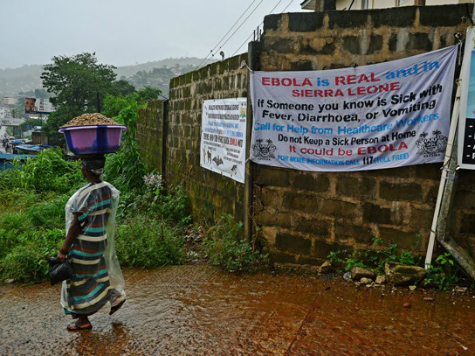
The World Health Organization (WHO) estimates 4,493 deaths from Ebola and 8,997 cases in West Africa. Outlets mostly say the lack of money and resources are the main reasons, but they either skim over two important reasons or skip them all together. Even if the hospitals and countries had all the money and resources they need it would mean nothing until Africa overcomes the horrific stigma associated with Ebola and countries stop denying that people died of the disease.
It is true that Sierra Leone, Liberia, and Guinea have some of the worst healthcare systems in the world. But the fear of Ebola, mistrust in communities, and poor education outweigh the poor healthcare system. In March, WHO reported Ebola cases in Guinea with suspected cases in Liberia and Sierra Leone. Many doctors found the first victims in churches because “people believe the disease is a curse that can be cured by prayer or witchcraft.” In July, a family took a relative from a hospital in Sierra Leone to take her to a trusted traditional herbalist. She died on the way to another hospital. Other believe Ebola can be cured by eating raw onions or drinking condensed milk. In Liberia, a family who recently lost a loved one to Ebola attacked workers at one house. They insisted she died of a curse.
“The family of the victim were angry, saying it was a curse, not Ebola,” said medical worker Anthony Worpor. “A crowd gathered, and some accused us health workers of spreading the disease ourselves. They even began touching a local journalist we had brought with us, saying: ‘if you think it is us spreading it, then here you are, we will infect you’.”
Some citizens think Westerners brought the disease to Africa or “believe Ebola is a myth created so that medical workers can carry out ‘cannibalistic rituals.'” Medical workers attempt to educate poor communities about Ebola, but they are met with slammed doors or violence. There are over 50,000 people in New Kru Town, Liberia, but hardly anyone owns indoor plumbing. Medical workers went shack to shack to educate residents about Ebola and marked complying houses with a blue cross. A mob attacked the Redemption Hospital after a woman died “following nationwide rumours that health care workers were themselves passing on the disease.” The hospital shut down due to fears of the staff’s safety. Medical workers in Guinea were threatened as they tried to help residents.
“In Nongoha we were told that if we don’t leave we would be cut into pieces and our flesh thrown into the water,” said an unidentified medical worker.
Africans do not like the idea of changing their daily routines. Consumption of a fruit bat is believed to be the cause of the Ebola outbreak. Governments and medical organizations urge people to stop eating this bushmeat.
“It is difficult to change a society’s way of life, but when it comes to saving lives I think no efforts should be spared,” said Guinea’s Health Minister Rémy Lamah. “We didn’t say that people will no longer eat meat. [Discouraging bush meat] is just an interim measure.”
Funerals are another reason why cases are unreported. Ebola victims need to be buried in a specific way to prevent spreading the disease. These victims are most contagious right after they pass away. Dr. Barry Hewlett and Dr. Bonnie Hewlett wrote about African burial rituals after the Ebola outbreak in Uganda in 2000. Family members wash the bodies, use a common bowl for hand-washing, “and a final touch or kiss on the face of the corpse (which is known as a ‘a love touch’) is bestowed on the dead.” The body is buried near the family “because ‘the family wants the spirit to be happy and not feel forgotten.'” The Hewletts said people do not want to change the rite because “the deceased person’s spirit (tibo) will cause harm and illness to the family” if there is not a proper burial.
In September, Sierra Leone implemented a three-day lockdown. Officials found 77 bodies illegally buried. Half of the bodies were infected with Ebola. In Freetown, fresh graves showed the government might be “underplaying the gravity of the situation on the ground.” King Tom Cemetery supervisor Abdul Rahman works closely with the burial teams. He asks the team members if the person was Ebola positive and the double checks the death certificate. Each burial is carefully recorded in a notebook specifically for Ebola deaths. Despite the records, the health ministry denies all the deaths are from Ebola.
“It is not possible that all of them are Ebola-related deaths,” said health ministry spokesman Sidie Yahya Tunis.
The burial teams agree with Rahman.
“Any body we collect is a positive case,” said burial team supervisor Sorie Kessebeh. “All the bodies that we are bringing in are positive.”
Socrates said “[P]refer knowledge to wealth, for one is transitory, the other perpetual.” Africans are not bringing their ill relatives or neighbors to hospitals due to lack of beds and medicine. It is because of poor education. Educate the citizens and medical organizations can provide the world with better estimates on Ebola.

COMMENTS
Please let us know if you're having issues with commenting.